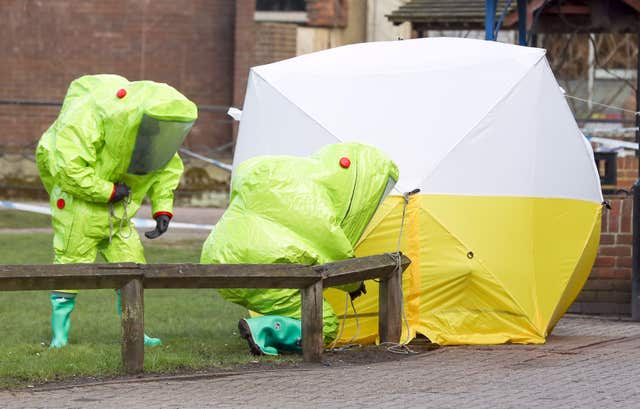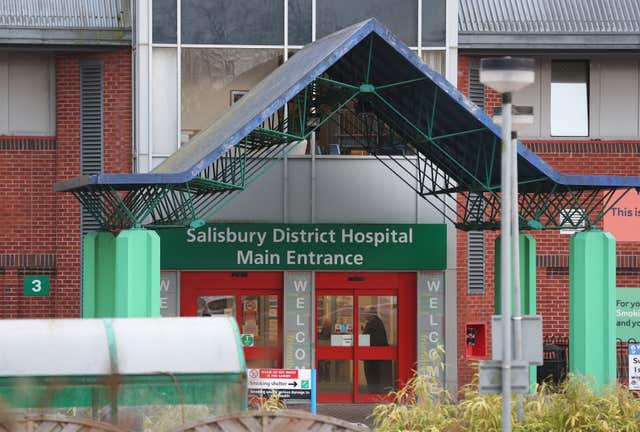‘No discussion of security arrangements’ after ex-spy discharged from hospital
Salisbury District Hospital announced Sergei Skripal’s discharge on Friday.

Scotland Yard has said it will not discuss “any protective or security arrangements” for former Russian spy Sergei Skripal and his daughter following their discharge from hospital.
Mr Skripal, 66, and his daughter, Yulia Skripal, 33, were admitted to Salisbury District Hospital after coming into contact with the military-grade nerve agent novichok.
The pair were left fighting for their lives after being found unconscious on a park bench in Salisbury, Wiltshire, on March 4.
On Friday morning, the hospital confirmed that Mr Skripal had left the hospital, following his daughter’s discharge on April 10.
In a statement, Scotland Yard said: “Detectives from the UK’s Counter Terrorism Policing network continue to investigate the attempted murders of Sergei and Yulia Skripal in Salisbury in March this year.
“They are both making good progress and we are pleased that Mr Skripal has now also been released from hospital, which was announced by the NHS earlier this morning.
“This is a complex investigation and detectives continue to gather and piece together all the evidence to establish the full facts and circumstances behind this dreadful attack.
“In the interests of Sergei and Yulia’s safety, we will not be discussing any protective or security arrangements that are in place.”

A hospital spokesman said: “While these patients have now been discharged, their right to patient confidentiality remains and limits us from giving detailed accounts of the treatment these individuals received.
“However, treating people who are so acutely unwell, having been poisoned by nerve agents, requires stabilising them, keeping them alive until their bodies could produce more enzymes to replace those that had been poisoned.”
A small amount of novichok is thought to have been used in liquid form to target former Russian agent Mr Skripal and his daughter.
The attack in March sparked a wave of diplomatic expulsions by Britain and its allies, and retaliatory ones by Russia.

Hospital chief executive Cara Charles-Barks described Mr Skripal’s discharge as “fantastic news”.
“That he, Yulia and DS Bailey have been able to leave us so soon after coming into contact with this nerve agent is thanks to the hard work, skill and professionalism of our clinicians, who provide outstanding care to all our patients, day in and day out,” she said.
“This has been a difficult time for those caught up in this incident – the patients, our staff and the people of Salisbury.
“I want to thank the public for their support, and I want to pay a special tribute to both the clinical staff here at the trust and those who work so hard behind the scenes.
“They’ve demonstrated the very best of the NHS.”
Lorna Wilkinson, director of nursing at the hospital, said Mr Skripal’s discharge was “an important stage in his recovery”.
“Treating him and the other two people poisoned by this nerve agent, while still providing outstanding care to the other patients who rely on our hospital, has been a huge and unprecedented challenge that I’m proud our staff at Salisbury Hospital have risen to,” she said.
Professor Steve Powis, medical director of NHS England, said: “I would like to thank the nurses, doctors, and all the other staff whose skills, compassion and dedication have saved the lives of Yulia and Sergei Skripal and Detective Sergeant Nick Bailey.”
Prof Powis described their “remarkable recovery” as a reminder of the “world-class treatment and care” available at local hospitals around the country.





